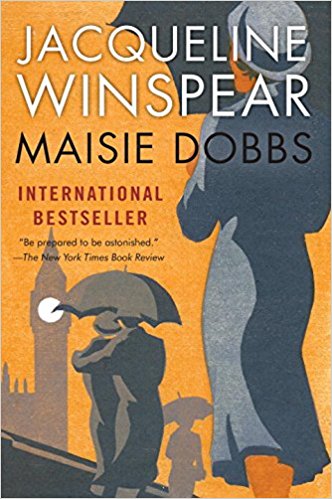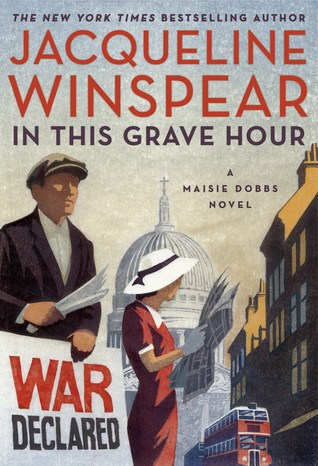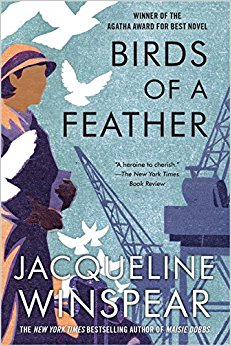
The British Isles have produced some of the finest writers and novels in the world. James Joyce, William Shakespeare, J.K. Rowling, Charles Dickens, George Orwell, Jane Austen, J.R.R. Tolkien, C.S. Lewis, Virginia Woolf, T.S. Eliot, Neil Gaiman, H.G. Wells, Agatha Christie, Lewis Carroll, Roald Dahl, Ian Fleming…and those are just a few off the top of my head. It's really quite incredible, especially once you factor in what a small place it is, and how few people live there compared to other parts of the world.
For that reason, we want to take some time now and then to feature great examples of British literature. We'll feature old and new, classic and popular fiction. The main criteria are:
- There must be a tie to the British Isles. Either the author needs to have a tie to the British Isles, or the book should feature the area prominently. That means England, Ireland, Wales, Northern Ireland, or Scotland. No exceptions.
- It should be good. That's highly subjective, of course, but we're not going to subject our readers to any old thing with a loose association to something British. The vast majority of our selections will be traditionally published, but if we encounter something wonderful and self-published, we won't rule it out.
Maisie Dobbs by Jacqueline Winspear

For our first Great British Book Club selection, we've chosen the Maisie Dobbs detective series by Jacqueline Winspear. On an island filled with great mysteries and great mysteries writers, this series stands out. The novels are set in post-World War I England (well, mostly England) and each one tells the story of someone impacted by the war – always through the keenly observant eyes of our detective, Ms. Dobbs. Through the course of her investigations, she's able to solve mysteries and help bring peace to those she works with. At the same time, she's working on coming to terms with her own wartime traumas.
One of the most interesting aspects of the novels is the fact that Maisie Dobbs grew up poor and worked in service before her career in investigative work. Through a combination of brains, hard work, and luck, she was able to cross the almost un-crossable line between poor and “better off”, becoming independent in a time when very few women were able to do so. The author does a great job of highlighting the struggles in shifting one's status, not to mention the guilt felt about those who weren't so lucky and socially mobile. The first novel in the series hops back and forth between the time during World War I and a time some years after, in the late 1920s. The parallel stories tie together remarkably well, and it's no surprise Winspear was awarded the 2003 Agatha Award for Best First Novel.
Something else that really brings the books to life is the way that Dobbs interacts with her clients. Though she's been very well-trained by her mentor, Maisie is not naturally at ease with people. She relates to people in a very methodical and well-intentioned way, and the book does a good job of highlighting her thoughts as she's trying to put people at ease or read between the lines of their testimonies. While some people would naturally reach out to touch someone as they tell a stressful story, Maisie Dobbs stops to think, “If I reach out to touch her hand, it might have — effect. Therefore, I will —.” From a lesser writer, it might come off as cold or robotic, making the detective less likable. However, Winspear writes Maisie with a warmth and depth of feeling that prevents any such negative feelings from forming (at least for us).
Though I can't vouch for the historical accuracy of every last detail, I can say that the time and place become almost like characters in the Maisie Dobbs novels. At times it's oppressive, and we see crowded slums full of sick people who can't afford to visit the doctor (pre-NHS, this is). At other times, it feels refreshing and innocent and unspoiled, particularly as she talks about suburbs just starting to crop up, or the relative lack of automobiles on the roads. If you've ever been to England, you'll also appreciate the thoughtful descriptions of the landscape and air and weather. It'll make you feel like you're back there again.
Overall, we highly recommend the Maisie Dobbs series to anyone who enjoys a good mystery and a strong female detective. Personally, I'm not even very fond of wartime/war-related novels, but these were excellent.
Buy the Maisie Dobbs Novels:

#1 – Maisie Dobbs
#2 – Birds of a Feather
#3 – Pardonable Lies
#4 – Messenger of Truth
#6 – Among the Mad
#7 – The Mapping of Love and Death
#8 – A Lesson in Secrets
#9 – Elegy for Eddie
#10 – Leaving Everything Most Loved
#11 – A Dangerous Place
#12 – Journey to Munich
#13 – In This Grave Hour
1 thought on “Great British Reading Club #1: Maisie Dobbs Detective Series”